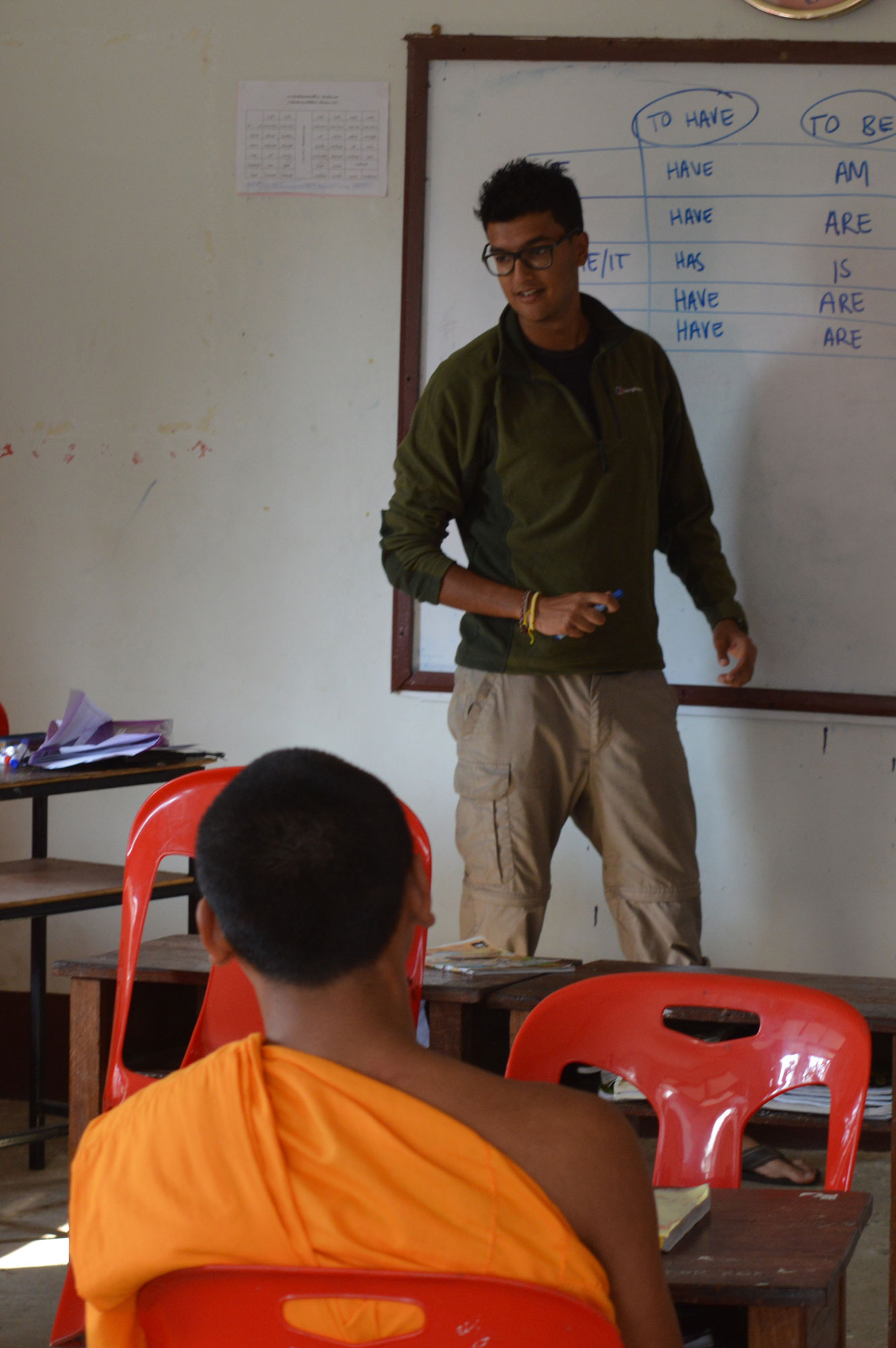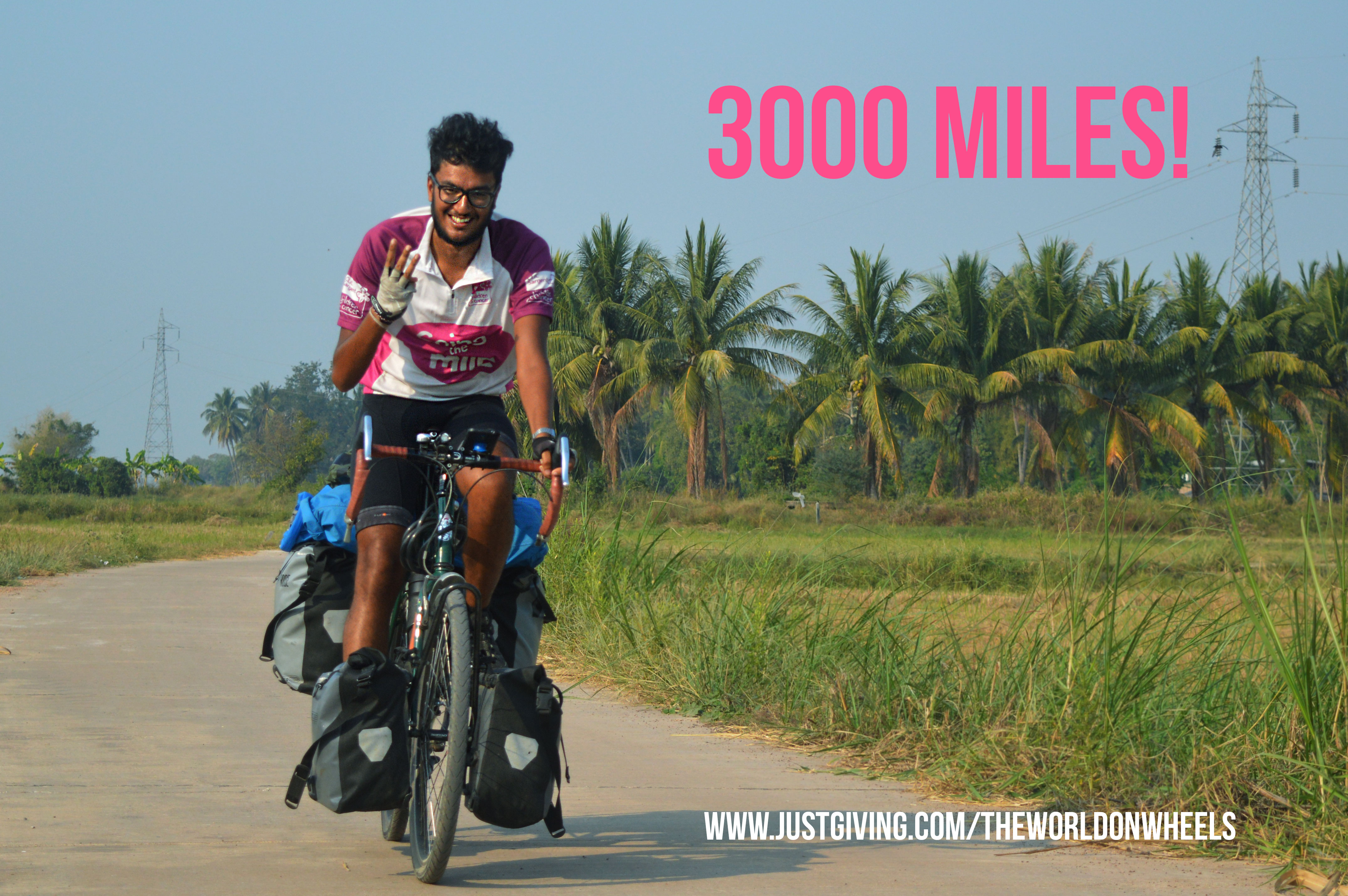"Applying economics to a real life situation"; a blog post by fundraising Warwick graduate cycling the world

"Applying economics to a real life situation"; a blog post by fundraising Warwick graduate cycling the world
Friday 30 Jan 2015Last year, a Warwick Economics graduate began a yearlong charity cycling journey. Hitesh Pankhania, who studied Philosophy, Politics, and Economics (PPE) is currently cycling from Indonesia to London to raise money for charity with his cousin Vivek Jadav.
 Hitesh and Vivek have been updating everyone on their journey in their blog, The World on Wheels, and being a Warwick Economics graduate, Hitesh got in touch with the Department to tell us personally about his experiences cycling around the world:
Hitesh and Vivek have been updating everyone on their journey in their blog, The World on Wheels, and being a Warwick Economics graduate, Hitesh got in touch with the Department to tell us personally about his experiences cycling around the world:
“My cousin and I decided to go on a journey around the world to raise money for childrens cancer charity CLIC Sargent and experience cultures, countries and people in a way that you wouldn't normally do. We'd never cycled before and now we're about 4 months in and have cycled over 3000 miles.
We've cycled some of the busiest roads in Indonesia, through the hills of Sumatra, the beaches of Malaysia and are now attempting the mountains of Laos and eventually Southern China. The past 10 days were spent teaching English at a school for monks in a remote, tiny village in Thailand; it was a humbling experience living and eating with the monks.
There are tough days, slogging up serious and almost impossible looking gradients, but thought of home, friends and our challenge for charity keeps us going.”
Hitesh has even been applying what he learnt during his time studying Economics at Warwick to situations that he has experienced during their challenge.
A real life Bargaining Situation
"After 3 years of studying, as much as I thought I'd forget everything that I'd learnt, I was surprised to find that lectures and lessons would often come back to me while I'm cycling. An example is when I was involved in a traffic collision in Phuket and entered into a Bargaining Situation, as I learnt about in module ‘EC343: Topics in Applied Economics B’.
Rather than bargaining over the price of a house, we were bargaining over the terms of settling the traffic dispute. If the bargaining broke down, the alternative would be to go to court and settle the dispute there. Let us assume, as was the truth, that the payoffs from the breakdown in negotiation (going to court) would heavily favour me and that we were both aware of the payoffs. Basic economic theory, would suggest that with such a large outside option, the negotiations would break down, we'd go to court and I would receive a payoff. Why then, during negotiations, did she want to go to court (i.e. want negotiations to breakdown)?
I think, there are two reasons. The first, as explained by economic theory, is the concept of patience. I didn't have the patience to wait for the negotiation to break down and go to court; I needed to get on with the cycling. Hence she had more bargaining power and was using this to receive more of the surplus during negotiations.
She felt as if she'd been wronged. Irrespective of payoffs and outside option, she wanted to go to court to settle the matter in a just way. How do economic theories handle very human concepts such as justice? Seeing an economic theory in real life showed me that while theories are a useful lens to try and analyse situations; we sometimes forget their limitations.
Another example is in the mountainous region of Northern Thailand and Laos. While struggling through the hills, we saw some of the H'Mong people, who in these regions employ low-technology slash-and-burn agriculture. Instead of loping hills, I couldn't help but see Marginal Productivity graphs and think about how productivity could be massively increased by investments in capital and technology.
It appears, however, that the H'Mong live happy and contented lives, seemingly unperturbed by their relatively low crop yields. While by no means a novel discovery, it was important for me to see that sometimes people are completely unmotivated by some economic concepts.
If you would like to support Hitesh on his challenge and help raise money for the childrens cancer charity CLIC Sargent, you can do so at justgiving.com/theworldonwheels.

